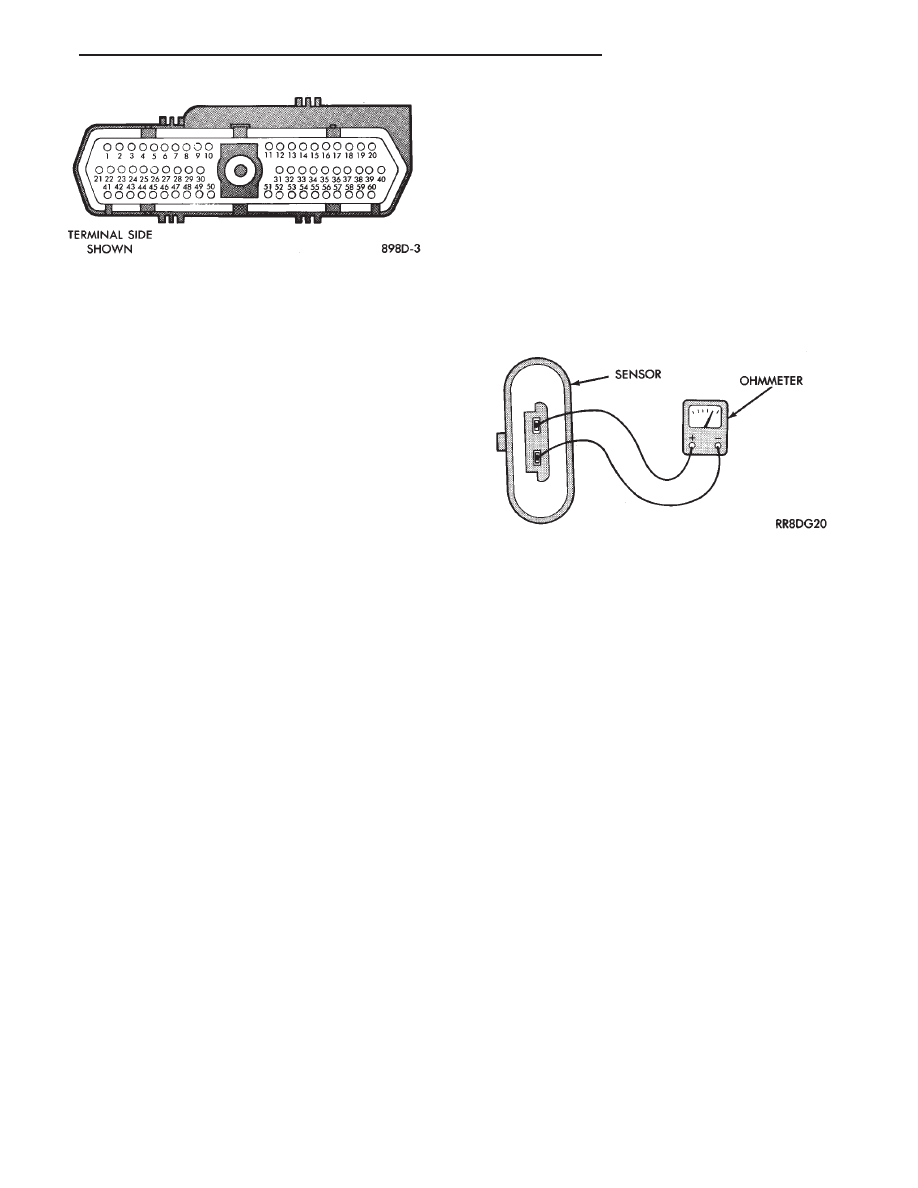Chrysler Le Baron, Dodge Dynasty, Plymouth Acclaim. Manual - part 288

(10) If no spark is produced, replace the ignition coil.
POOR PERFORMANCE TEST
To prevent unnecessary diagnostic time and
possible incorrect results, the Testing For Spark
At Coil procedure should be performed before
this test.
WARNING: APPLY PARKING BRAKE AND/OR BLOCK
THE WHEELS BEFORE PERFORMING ANY ENGINE
RUNNING TESTS.
Check and adjust basic timing (refer to the specifica-
tion section of this group and see service procedures).
COOLANT TEMPERATURE SENSOR TEST
(1) With key off, disconnect wire connector from
coolant temperature sensor (Fig. 6).
(2) Connect one lead of ohmmeter to one terminal of
coolant temperature sensor.
(3) Connect the other lead of ohmmeter to remaining
terminal of coolant temperature sensor. The ohmmeter
should read as follows;
• Engine/Sensor at normal operating temperature
around 200°F should read approximately 700 to 1,000
ohms.
• Engine/Sensor at room temperature around 70°F,
ohmmeter should read approximately 7,000 to 13,000
ohms.
Refer to On Board Diagnostics in the General
Diagnosis section of Group 14. Also, refer to the
DRBII scan tool and the appropriate Powertrain
Diagnostic Procedures manual for additional
test procedures.
MANIFOLD ABSOLUTE PRESSURE (MAP) SENSOR
TEST
Refer to the DRB II scan tool and appropriate Pow-
ertrain Diagnostic Procedures manual for further test
procedures.
Fig. 5 60-Way Electrical Connector, Powertrain con-
trol module
Fig. 6 Coolant Temperature Sensor Test
Ä
IGNITION SYSTEMS
8D - 13